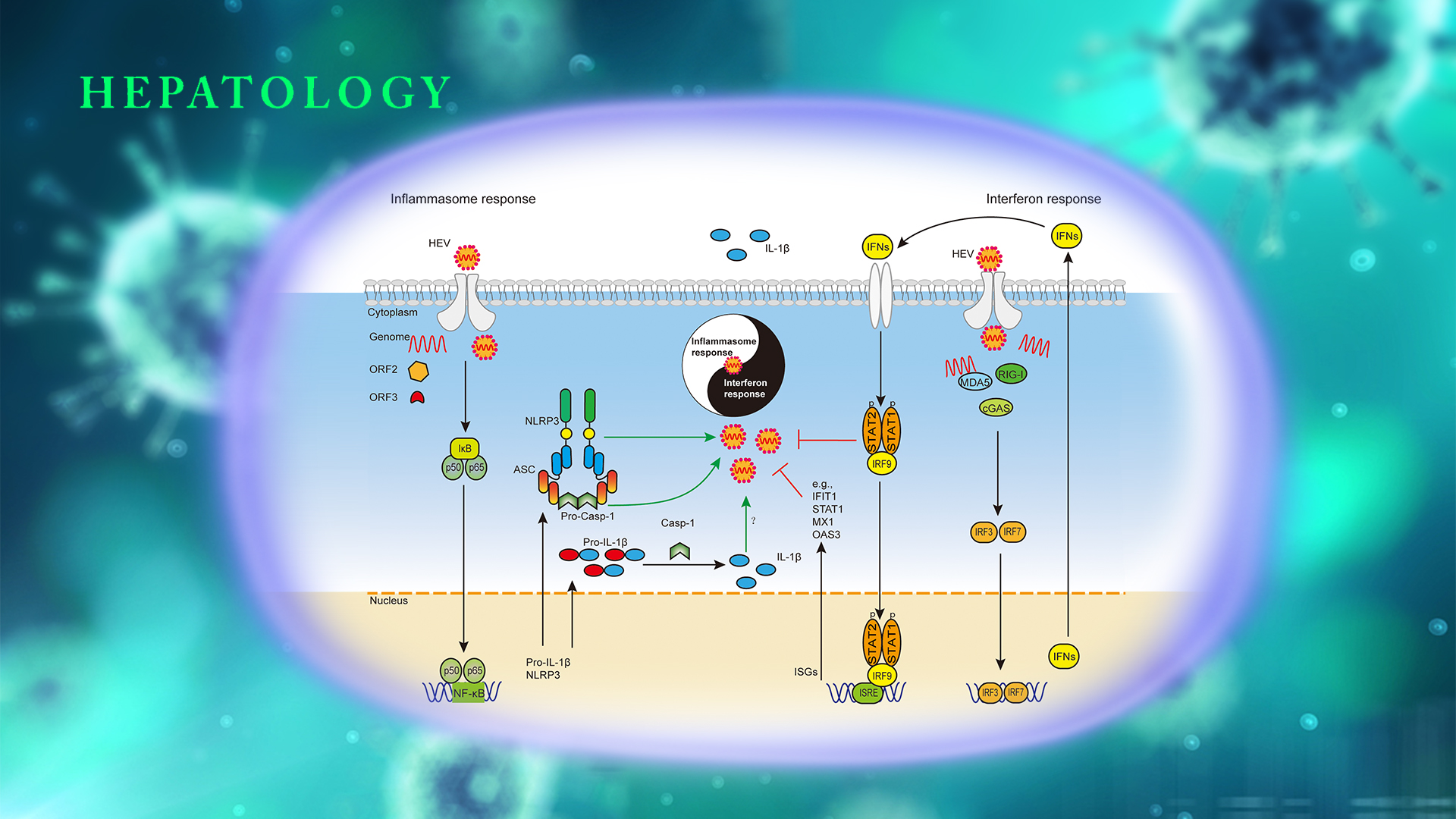On August 15, 2021, Ph.D. Yijin Wang of the School of Medicine at the Southern University of Science and Technology (SUSTech) collaborated with Ph.D. Qiuwei Pan of the Erasmus University Rotterdam in the Netherlands and Ph.D. Lin Wang of the School of Basic Medicine of Peking University (PKU) to publish a paper about research into mechanisms of hepatology. Their study, entitled “Hepatitis E virus infection activates NLRP3 inflammasome antagonizing interferon response but therapeutically targetable,” was published in the top medical journal Hepatology. The mechanism of Hepatitis E virus (HEV) activating inflammatory response and potential antiviral and anti-inflammatory intervention strategies were deeply explored.

HEV infection is the most common cause of liver inflammation. HEV-induced inflammatory over activation can easily lead to severe infection and high mortality in patients with underlying diseases and pregnant women. But the pathogenic mechanisms remain largely unclear. To explore whether HEV infection activates inflammasomes, the crosstalk with antiviral interferon response, and the potential of therapeutic targeting. The study measured IL-1β secretion, the hallmark of inflammasome activation, in serum of HEV-infected patients and rabbits, and in cultured macrophage cell lines and primary monocyte-derived macrophages.
The team found that genotypes 3 and 4 HEV infection in rabbits elevated IL-1β production. A profound increase of IL-1β secretion was further observed in HEV-infected patients (1733 pg/mL ± 1234; n = 70) compared with healthy individuals (731 pg/mL ± 701; n = 70). Meanwhile, as macrophages are the drivers of an inflammatory response, they found inoculation with infectious HEV particles robustly triggered NLRP3 inflammasome activation in primary macrophages and macrophage cell lines.
The study further revealed that the ORF2 capsid protein and the formed integral viral particles are responsible for activating inflammasome responses. The team also identified NF-κB signaling activation as a key upstream event of HEV-induced NLRP3 inflammasome response. Interestingly, inflammasome activation antagonizes interferon response to facilitate viral replication in macrophages. Pharmacological inhibitors and clinically used steroids can effectively target inflammasome activation. Combining steroids with ribavirin simultaneously inhibits HEV and inflammasome response without cross-interference.
HEV infection strongly activates NLRP3 inflammasome activation in macrophages, which regulates host innate defense and pathogenesis. Therefore, therapeutic targeting NLRP3, particularly when combined with antiviral agents, represents a viable option for treating severe HEV infection.
Ph.D. Yijin Wang of the School of Medicine at SUSTech, Ph.D. Qiuwei Pan of the Erasmus University Rotterdam in the Netherlands, and Ph.D. Lin Wang of the School of Basic Medicine at PKU are the co-corresponding authors of this paper. The molecular mechanism figure in this paper was edited by Ph.D. Yang Li of the Erasmus Medical Center.
The study was supported by a VIDI grant from the Netherlands Organization for Scientific Research (NWO) and the China Scholarship Council.
Paper link: https://aasldpubs.onlinelibrary.wiley.com/doi/abs/10.1002/hep.32114
Proofread ByAdrian Cremin, Yingying XIA
Photo By